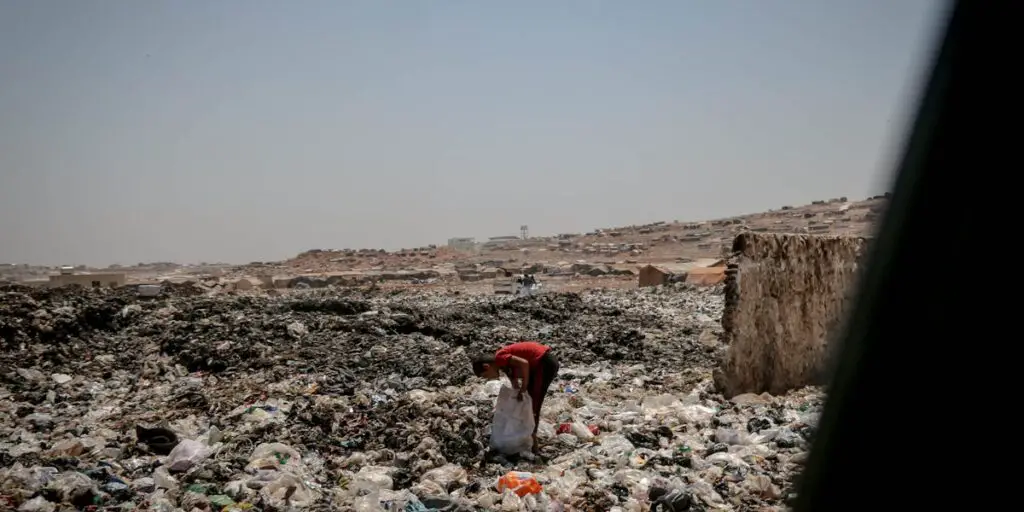Problems Associated with Improper Waste Disposal and Its Impact on Humans
Introduction
Improper waste disposal is one of the most pressing environmental issues globally. It refers to the careless or unregulated handling, treatment, or disposal of waste materials, including municipal, industrial, hazardous, and biomedical waste. Such practices lead to significant environmental degradation and pose severe risks to human health, safety, and well-being.
Problems Associated with Improper Waste Disposal
1. Environmental Pollution
- Land Pollution: Non-biodegradable waste like plastics and electronic waste accumulates in landfills, reducing soil fertility and contaminating groundwater.
- Water Pollution: Leachates from improperly disposed waste seep into rivers, lakes, and groundwater, introducing toxic substances like heavy metals and chemicals into water sources.
- Air Pollution: Open burning of waste releases harmful gases such as carbon monoxide, dioxins, and particulate matter into the atmosphere, degrading air quality.
2. Health Hazards
- Improper disposal of biomedical waste exposes individuals to infectious diseases.
- Toxic chemicals from industrial waste, such as lead, mercury, and arsenic, can bioaccumulate, leading to long-term health issues like cancer, neurological disorders, and organ failure.
3. Spread of Disease
- Accumulated waste serves as breeding grounds for disease vectors like mosquitoes, rodents, and flies.
- Diseases such as malaria, dengue, cholera, and typhoid often proliferate in areas with inadequate waste management.
4. Climate Change
- Decomposing organic waste in landfills emits methane, a potent greenhouse gas that contributes to global warming.
- Burning waste adds to carbon dioxide and black carbon emissions, exacerbating climate change.
5. Aesthetic and Social Issues
- Improper waste disposal leads to unsightly landscapes and foul odors, reducing the aesthetic appeal of urban and rural areas.
- Poor waste management affects tourism, property values, and the overall quality of life in communities.
6. Economic Losses
- Governments and local authorities incur high costs to clean up improperly disposed waste.
- Industries and communities face economic losses due to health-related absenteeism and reduced productivity.
—
Impact of Improper Waste Disposal on Humans
1. Health Impacts
- Respiratory Issues: Air pollution from waste burning can cause asthma, bronchitis, and other respiratory ailments.
- Waterborne Diseases: Contaminated water leads to cholera, diarrhea, and other gastrointestinal diseases.
- Toxic Exposure: Direct contact with hazardous waste or contaminated food and water can result in poisoning, cancers, and developmental disorders in children.
2. Mental Health Effects
- Living in areas with unregulated waste disposal contributes to stress, anxiety, and depression due to poor living conditions and foul odors.
- Social stigma associated with waste-picking jobs affects the mental well-being of marginalized communities involved in informal waste management.
3. Impact on Vulnerable Populations
- People living near landfills, waste dumps, or polluted water bodies are disproportionately affected.
- Waste-pickers and workers in informal recycling sectors face exposure to toxic substances, injury risks, and lack of medical care.
—
Examples of Improper Waste Disposal and Impacts
- Ghazipur Landfill, India: The massive waste pile in Delhi’s Ghazipur landfill emits methane, endangers nearby residents, and pollutes water sources.
- Plastic Pollution in Oceans: Improper disposal of plastic waste has resulted in massive ocean garbage patches, such as the Great Pacific Garbage Patch, affecting marine life and seafood safety.
- E-Waste Contamination: In areas like Guiyu, China, unregulated e-waste recycling has led to groundwater contamination and increased health risks among workers and residents.
Solutions to Address Improper Waste Disposal
- Waste Segregation: Promote the separation of biodegradable, recyclable, and hazardous waste at the source.
- Recycling and Reuse: Encourage recycling initiatives and the reuse of materials to minimize waste generation.
- Waste-to-Energy Technology: Invest in technologies that convert waste into energy, such as biogas and incineration plants.
- Public Awareness: Educate communities about the importance of proper waste disposal and its benefits for health and the environment.
- Strict Regulations and Monitoring: Enforce stringent laws for industrial and municipal waste disposal to ensure compliance.
- Community Participation: Involve local communities in waste management through programs like door-to-door collection and composting initiatives.
Conclusion
Improper waste disposal is a major threat to human health and the environment. It leads to pollution, the spread of diseases, and economic losses while exacerbating climate change. Addressing this issue requires coordinated efforts from governments, industries, and individuals to implement sustainable waste management practices. By promoting recycling, public awareness, and strict regulations, society can mitigate the adverse impacts of improper waste disposal and ensure a cleaner, healthier future for all.





